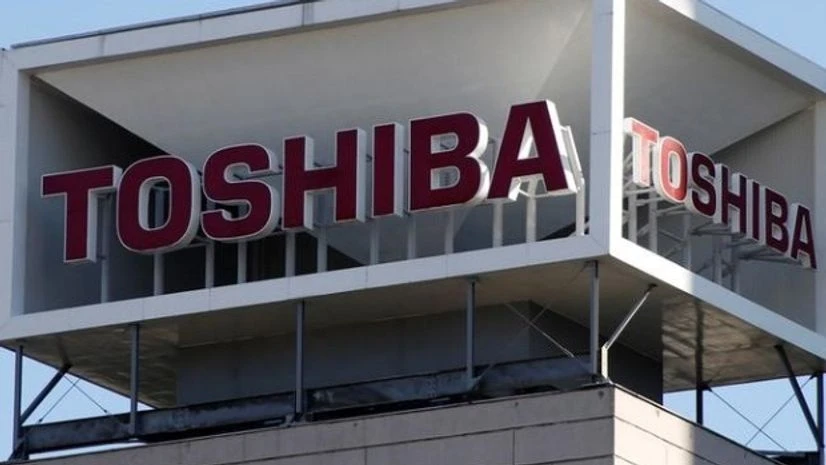Japan's crisis-racked Toshiba Corp has offered shares in its memory chip unit to creditors as collateral to secure debt refinancing, people briefed on the matter said on Wednesday.
The offer comes one day after the industrial conglomerate missed submitting audited third-quarter earnings for a second time and said it would 'actively consider' selling a majority stake in the Westinghouse nuclear unit at the centre of its troubles.
At a meeting with creditors on Wednesday, Toshiba also offered to put up stakes in other group firms such as Toshiba Tec Corp, a cash register company, as well as real estate as collateral, said the people, who declined to be identified as they were not authorised to speak on the matter.
Creditors have been asked to respond by March 24.
In addition, it asked for its third one-month extension of a waiver for a violation of a covenant in a syndicated loan, the sources said.
Also Read
Its main banks - Sumitomo Mitsui Banking Corp, Mizuho Bank and Sumitomo Mitsui Trust Bank - said they would give Toshiba their full support, the sources said. Representatives for the banks were not available for comment outside of regular business hours.
But some regional bank officials attending the near two-hour meeting expressed frustration, saying Toshiba should sell the stakes and pay back the money instead of offering them as collateral, one of the sources said.
A Toshiba spokesman said the company is considering various options to secure funds but that there was nothing to announce right now.
The TVs-to-construction conglomerate is putting up most or even all of its prized memory chip business for sale to cope with an upcoming $6.3 billion writedown for Westinghouse and to create a buffer for potential losses down the road.
A Japanese state-backed fund, the Innovation Network Corporation of Japan (INCJ), may invest in its memory chip business as a minority partner - a move that would help the government prevent a sale to bidders it deems risky to national security, separate sources familiar with the matter said.
Discussions on a potential investment are, however, at a very early stage and may not develop further as some people within the government are concerned it could be seen as a publicly funded bailout, one of the sources said.
Delisting risk
Shares in Toshiba tumbled to end down 12 per cent on Wednesday, hurt by growing fears of a delisting and a lack of clarity on whether Toshiba would proceed with a Chapter 11 filing for Westinghouse - a move that could stem losses.
The company now has a market value of just $7 billion, less than half of what it was worth in December.
The Tokyo Stock Exchange placed the stock on its supervision list on Tuesday - an automatic move that follows Toshiba's failure to clear up concerns about its internal controls a year and a half after a 2015 accounting scandal.
Market participants said the bourse's action meant that the shares were now "untouchable" for institutional investors who cannot invest due to compliance reasons.
Toshiba would be delisted if the bourse is not satisfied with a report on internal controls that Toshiba submitted on Wednesday. The report, required since the 2015 accounting scandal, must also address internal control lapses since then.
"Crucial details about Westinghouse won't be there. Toshiba is already in trouble for delaying the filing of its quarterly earnings twice, and without the complete report, the exchange is unlikely to find its report satisfactory," said Fumio Matsumoto, a senior fund manager at Dalton Capital Japan.
Westinghouse has been plagued by huge cost overruns at two US projects in Georgia and South Carolina.
Toshiba has also expanded a probe into the US nuclear unit after finding that certain managers exerted 'inappropriate pressure' in the accounting for the acquisition of the US nuclear power plant construction company that handles the two projects.

)
